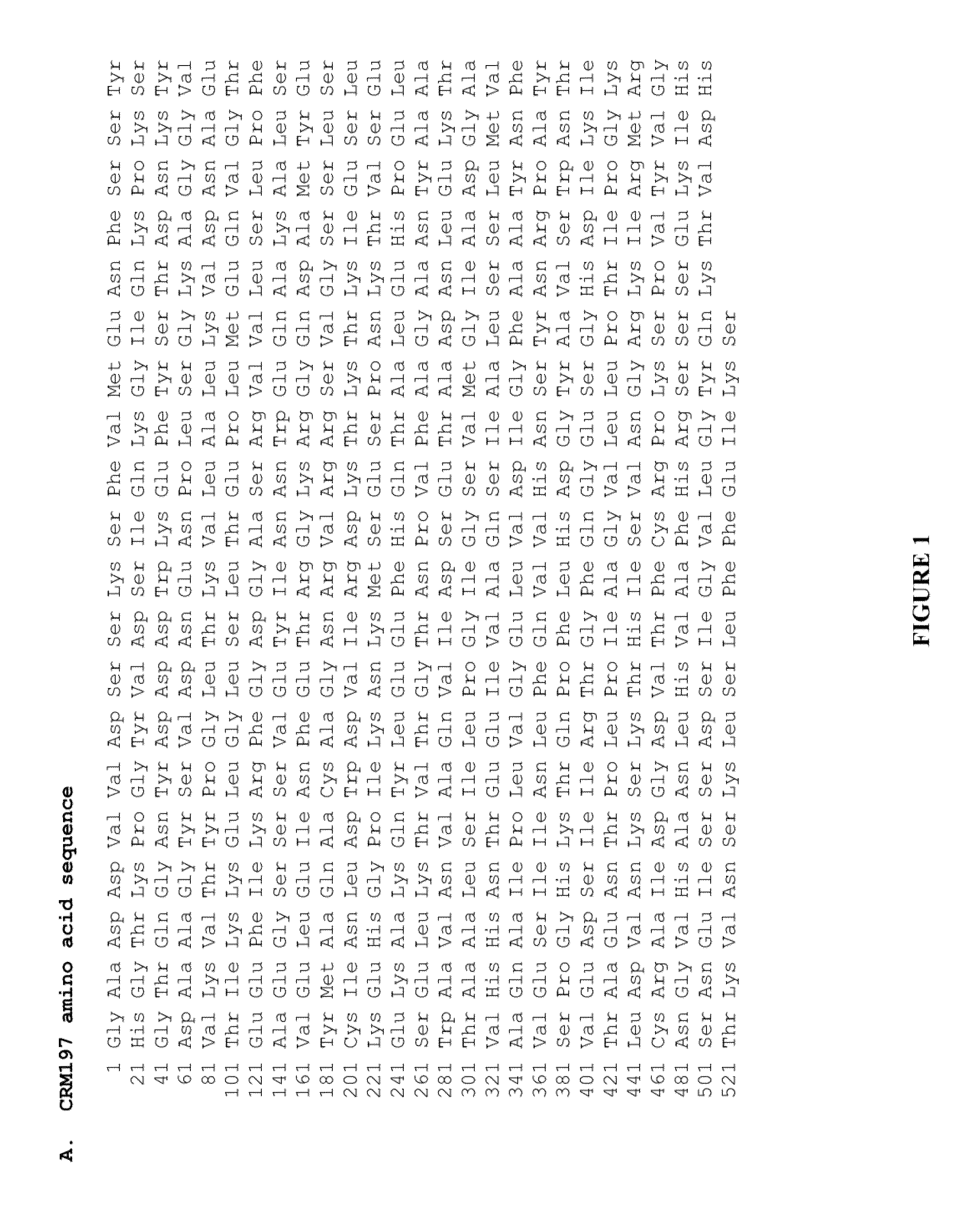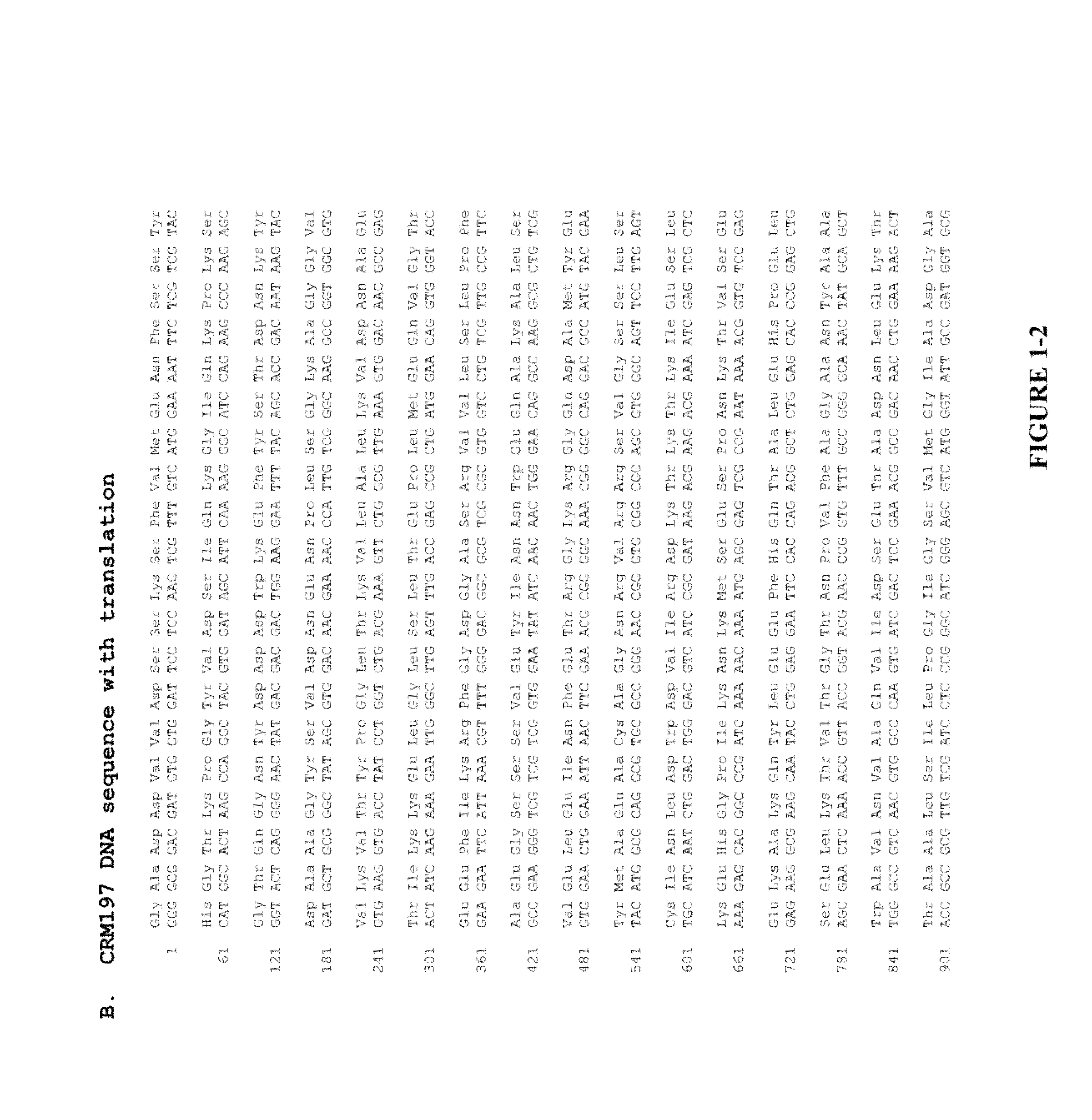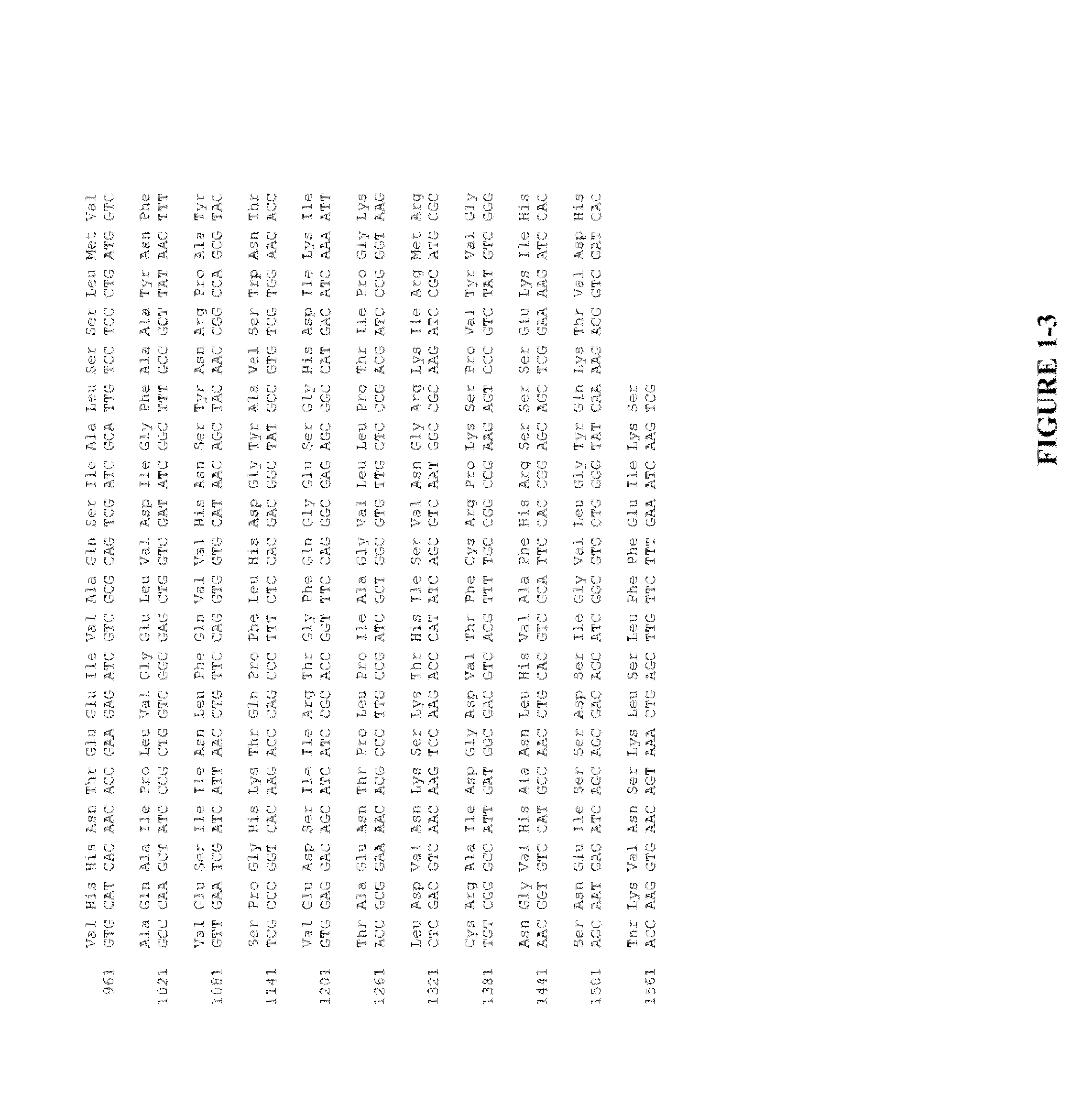High level expression of recombinant toxin proteins
a technology of recombinant toxin and high level expression, applied in the field of high level expression of recombinant toxin proteins, can solve the problems of sensory stimulation failure to inhibit motor reflexes, needs have presented significant challenges, etc., and achieve the highest yield of toxin proteins, high quality toxin, and high yield of toxin.
- Summary
- Abstract
- Description
- Claims
- Application Information
AI Technical Summary
Benefits of technology
Problems solved by technology
Method used
Image
Examples
example 1
High Throughput Expression of a Recombinant CRM197 Protein
[0189]CRM197 expression strains were constructed and the amount of soluble CRM197 protein produced in the strains was analyzed using capillary gel electrophoresis (SDS-CGE). Based on the resulting data, certain strains were selected for use in large-scale expression.
Construction and Growth of CRM197 Expression Strains
[0190]The CRM197 coding sequence was constructed using P. fluorescens preferred codons to encode the CRM197 amino acid sequence. FIG. 1 shows the amino acid and DNA sequences of the expressed synthetic CRM197 gene.
[0191]Plasmids carrying the optimized CRM197 sequence, fused to ten P. fluorescens secretion leaders as shown in Table 8, were constructed. The CRM197 coding sequence was fused in frame with that of P. fluorescens secretion leaders to target the protein to the periplasm for recovery in the properly folded and active form.
[0192]
TABLE 8Secretion leaders used for CRM197 expression screenSecretion Leader1Ds...
example 2
Large-Scale Expression of a Recombinant Crm197 Protein
[0201]Recombinant CRM197 protein was produced in Pseudomonas fluorescens strains PS538-772, PS538-776, and PS538-782 in 2 liter fermentors. Cultures were grown in 2 liter fermentors containing a mineral salts medium as described herein and also by, e.g., Riesenberg, D., et al., 1991, and maintained at 32° C. and pH 6.5 through the addition of ammonia. Dissolved oxygen was maintained in excess through increases in agitation and flow of sparged air and oxygen into the fermentor. Glycerol was delivered to the culture throughout the fermentation to maintain excess levels. These conditions were maintained until a target culture cell density (optical density at 575 nm (A575)) for induction is reached, at which time IPTG is added to initiate CRM197 production. Cell density at induction could be varied from A575 of 40 to 200 absorbance units (AU). IPTG concentrations could be varied in the range from 0.02 to 0.4 mM. pH from 6 to 7.5 and ...
example 3
High Throughput Expression of a Recombinant Cholera Toxin B Protein
Construction and Growth of Cholera Toxin B Expression Strains
[0203]The Cholera Toxin B coding sequence was constructed using P. fluorescens preferred codons to encode the Cholera Toxin B amino acid sequence. FIG. 3 shows the amino acid and DNA sequences of the expressed synthetic Cholera Toxin B gene.
[0204]Plasmids carrying the optimized Cholera Toxin B sequence, fused to the same ten P. fluorescens secretion leader coding sequences used with CRM197 (shown in Table 8) were constructed. The secretion leaders were included to target the protein to the periplasm for recovery in the properly folded and active form.
[0205]Constructs expressing the ten secretion leaders fused to the recombinant Cholera Toxin B protein were tested in P. fluorescens hosts. The four hosts listed in Table 9 were tested with each expression plasmid. Host cells were electroporated with the indicated plasmids, and grown and induced in 96-well form...
PUM
| Property | Measurement | Unit |
|---|---|---|
| molecular weight | aaaaa | aaaaa |
| molecular weight | aaaaa | aaaaa |
| molecular weight | aaaaa | aaaaa |
Abstract
Description
Claims
Application Information
 Login to View More
Login to View More - R&D
- Intellectual Property
- Life Sciences
- Materials
- Tech Scout
- Unparalleled Data Quality
- Higher Quality Content
- 60% Fewer Hallucinations
Browse by: Latest US Patents, China's latest patents, Technical Efficacy Thesaurus, Application Domain, Technology Topic, Popular Technical Reports.
© 2025 PatSnap. All rights reserved.Legal|Privacy policy|Modern Slavery Act Transparency Statement|Sitemap|About US| Contact US: help@patsnap.com



